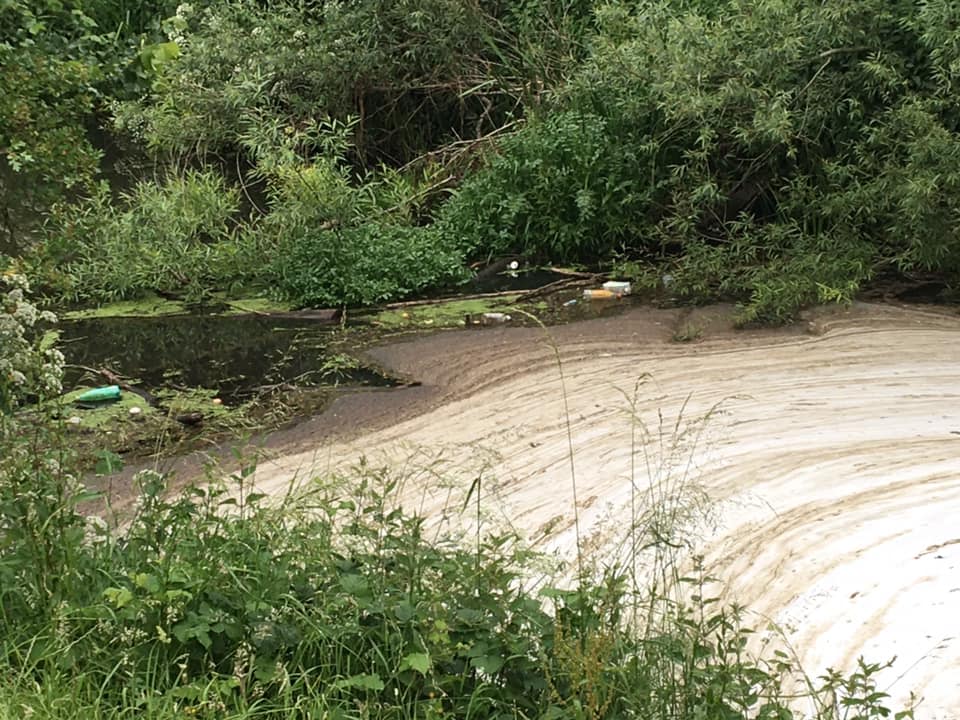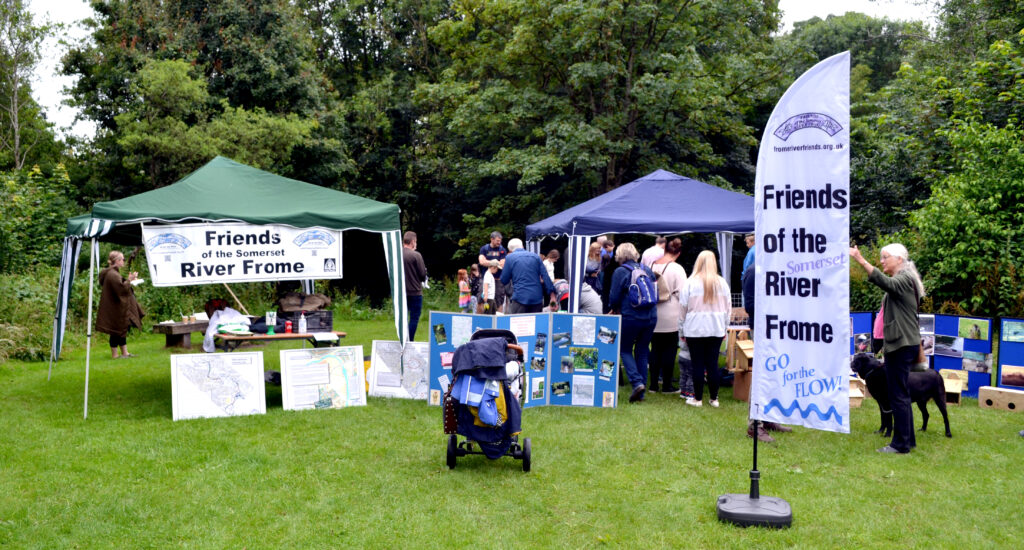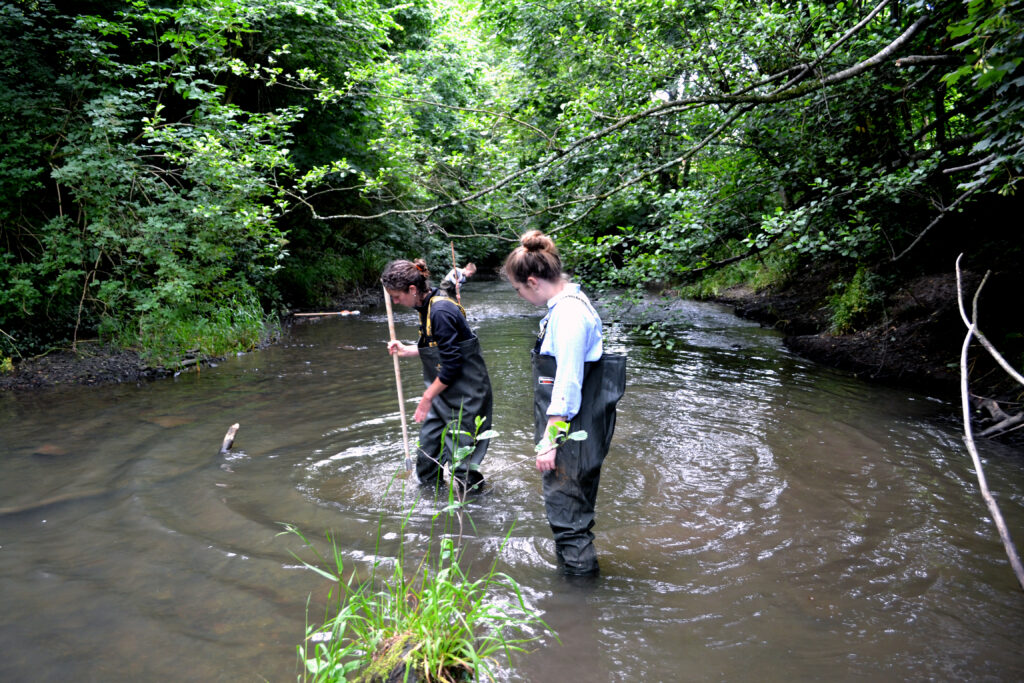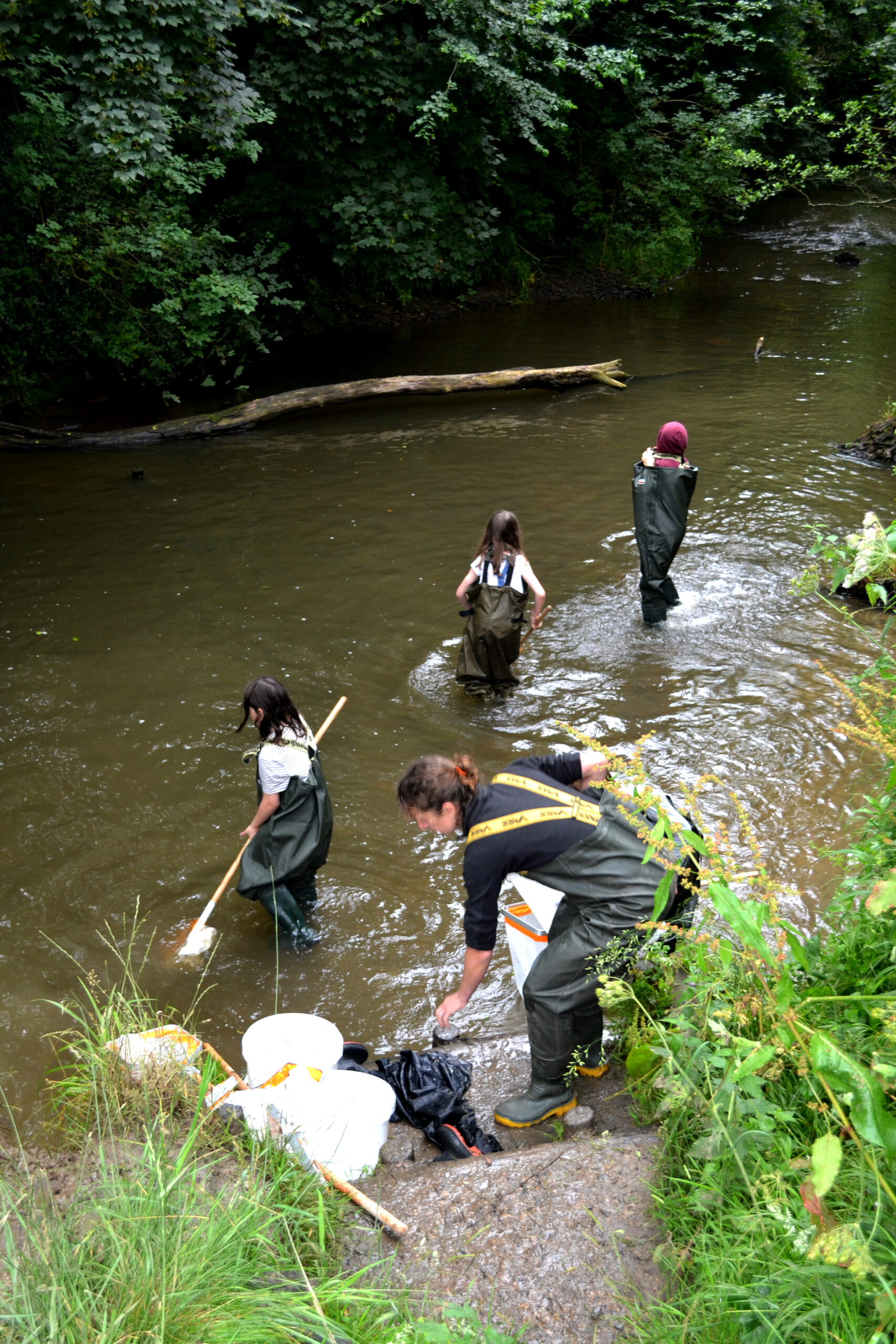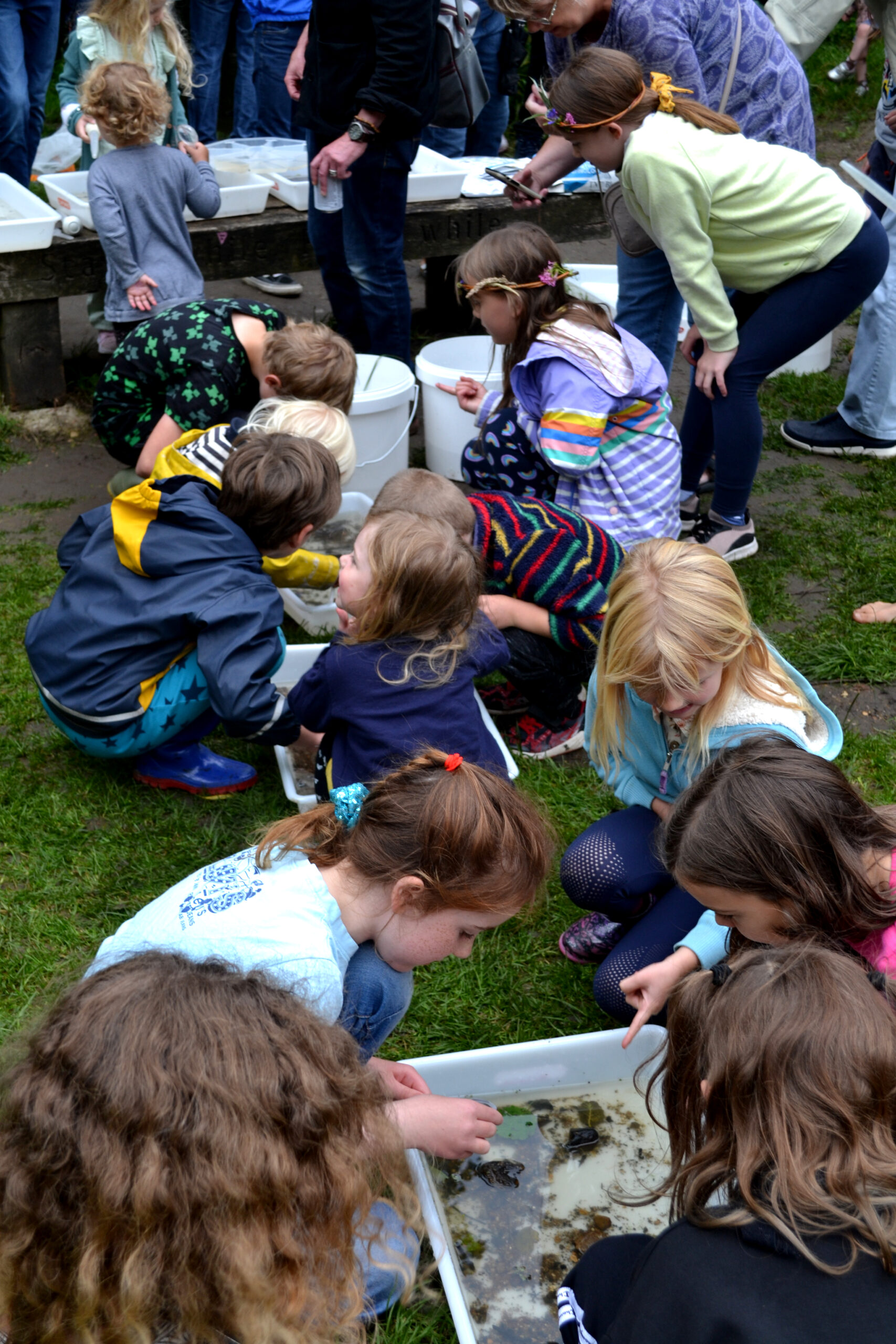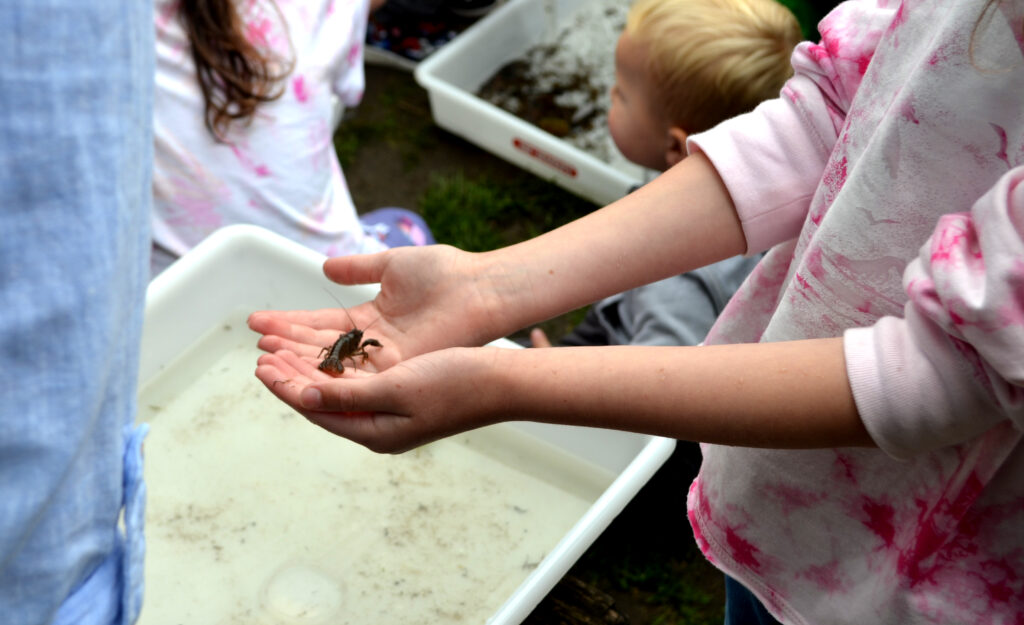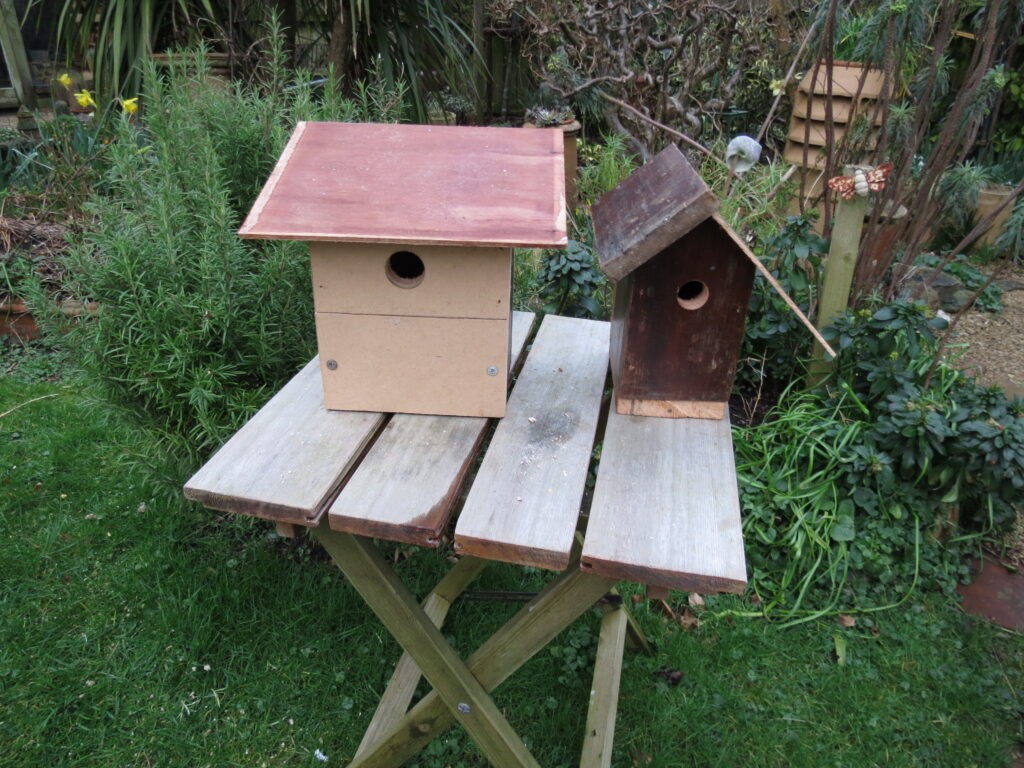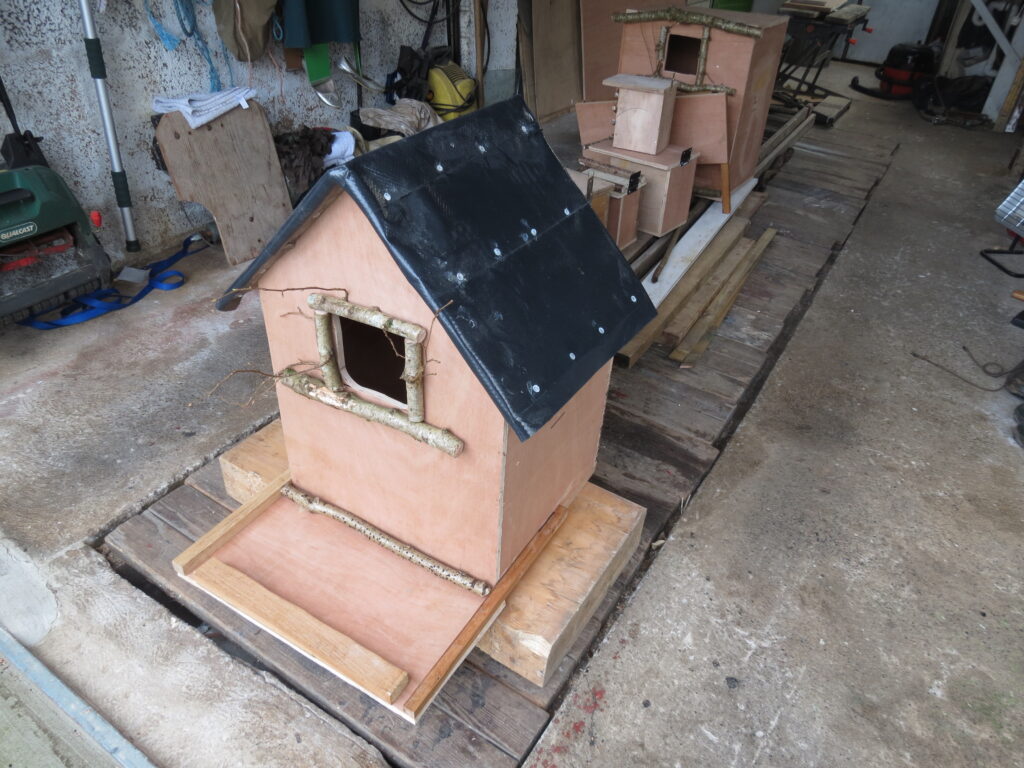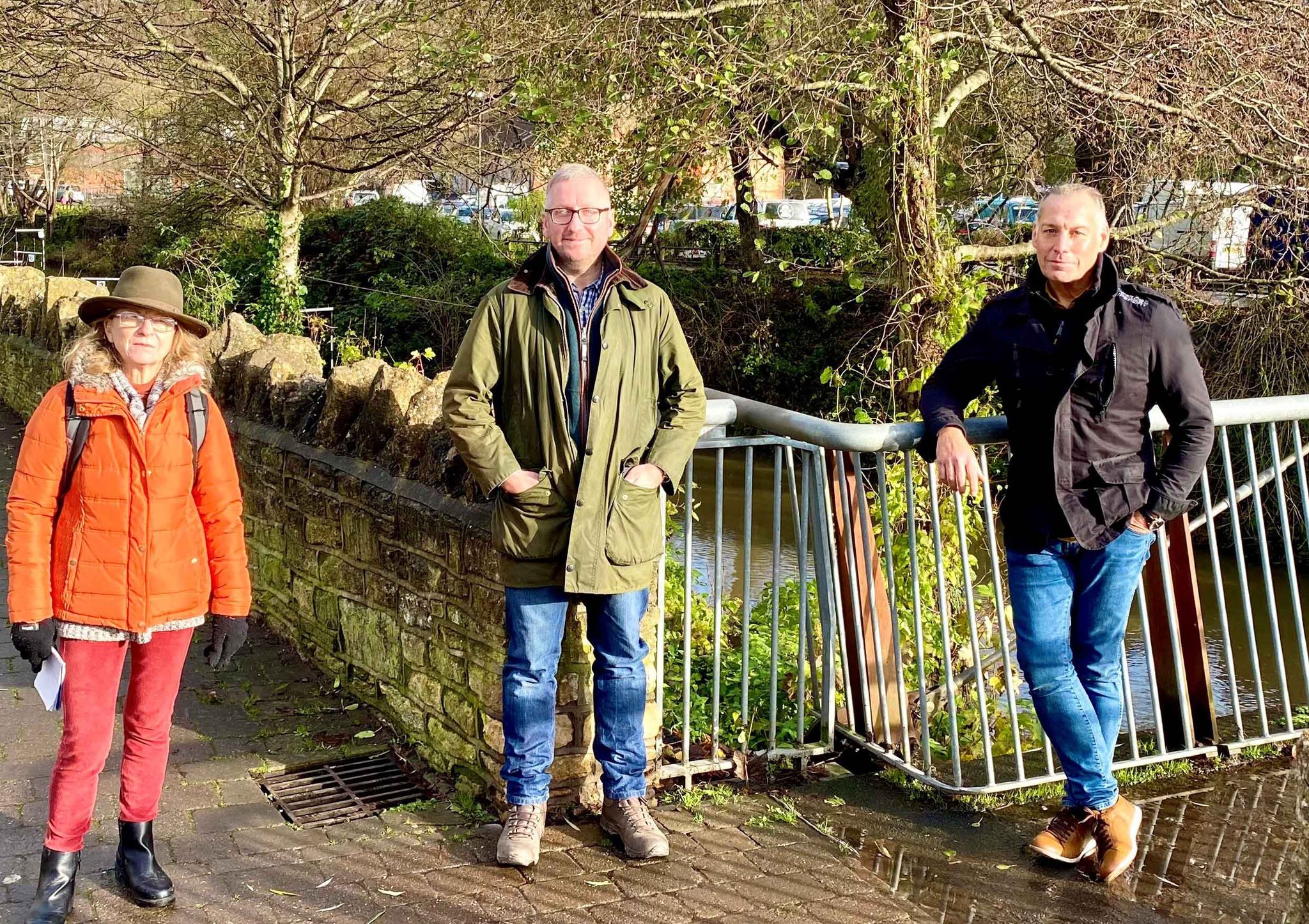A welcome, and increasingly visible addition, to Frome’s wildlife is the Eurasian Beaver – a small family has recently taken up residence at the Rodden Nature Reserve, which is owned by Asda and managed by a management committee of local experts. They are doing their best not to disturb the beavers and ask everyone else to do the same. One part of the reserve is currently open to the public until 1 March, and reopens on 1 August 2021. The area next to Asda is permanently closed to the public as a protected wildlife refuge. Visitors are asked to respect the visiting restrictions.
Having moved in and built a home the beavers are now felling some of the trees; this is mainly for food, for extending their lodge and building dams. There is no shortage of trees on the Reserve so their activity is not a problem; instead they are creating new habitat for wildlife as well as reducing flooding and pollution downstream. You can find out lots more at: Beavers | Somerset Wildlife Trust
Beavers are fantastic ‘ecosystem engineers’ and they are being reintroduced across Britain with the blessing of governments, to provide cost-effective ‘natural flood management – evidence collected from Devon and Cornwall’s beaver projects proves that letting beavers ‘do the work’ is far cheaper than sending in the diggers and contractors to restore wetlands and slow the flow.
Beavers build dams that hold water back and create nature-rich wetlands that help to reduce water pollution and improve river quality. They benefit fish, water voles, riverflies and many other species and are a keystone species of river and wetland ecosystems. Having beavers back is fully in line with the Frome River Strategy.
As beavers return to our area, Friends of the River Frome is part of a wider group of organisations, including the Somerset Wildlife Trust and the Beaver Trust, developing a beaver management framework, based on experiences in Devon and elsewhere. Having this in place will be necessary to give confidence to landowners, land managers and the public that beaver activity will be monitored and interventions made to deal with any potential problems before they arise.
If you’d like to play a part in supporting these efforts, and other projects to protect and improve the river Frome, you can become a friend of the river. Membership to Friends of the River Frome (FORF) is £15 a year and all profits go towards important river projects.
Beaver FAQs
How many beavers are there?
Currently there is one small family in residence.
Can I see the beavers?
Beavers are largely nocturnal animals, and they are resident on the area of the Reserve that has no public access with only limited views from the bridge to Edmund Park.
Will beavers cause flooding?
The beavers are unlikely to cause flooding that will put at risk roads and properties in the area; instead they help to reduce flooding downstream, which must be the main worry for those living near the Reserve, in central Frome, or indeed for Asda. Most of the flooding on the A362 adjacent to the Reserve comes from springs that rise from the cemetery, other land at Easthill and from the river when it is exceptionally high. Building houses at Easthill would be more likely to increase flood risk in this area than the beavers.
Beavers destroy trees, but many trees have been planted or grow near rivers. How can trees be protected?
A simple wire mesh around a tree will deter beavers. The majority of trees will regrow if they are felled by beavers. Many stretches of our river will benefit from having mature alder trees felled by beavers – and they will re-grow – many have not been coppiced for over 40 years. At this age alders are vulnerable to a fungal disease and also liable to topple over, pulling part of the river bank as they fall. Beaver-coppicing reduces shading of the water, enabling an increase in aquatic and emergent plants that provide habitat for fishes and aquatic invertebrates. Fallen tree trunks also provide good ‘woody debris’ habitat for river life and can modify river flow, of benefit to fishes such as wild brown trout.
Where can I learn more about beavers?
There are some good videos on The Beaver Trust Youtube Channel that showcase some of the benefits of beavers experienced in the beaver projects in Cornwall and elsewhere.

